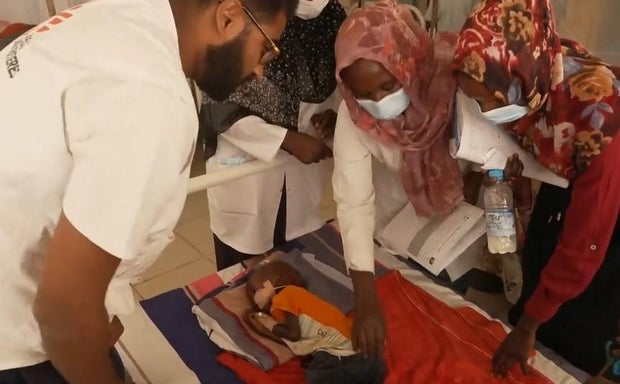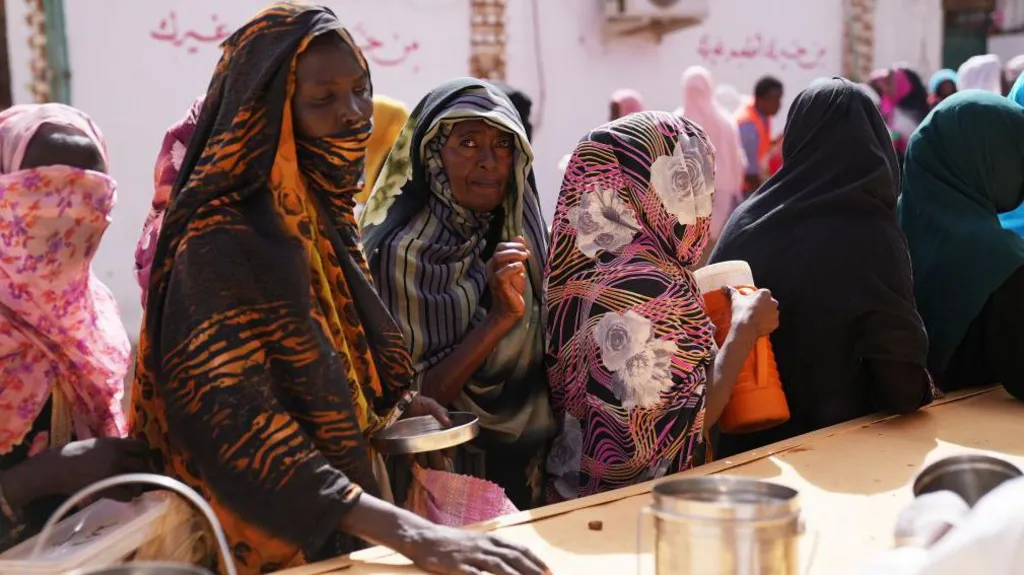Famine in Sudan: Where Is The Organization of Islamic Cooperation?!
"I think we're in dire straits here in Sudan.""Severe acute malnutrition happens over time. It's where kids don't get enough nutrients…They're unable to fight infections like normal.""They're unable to utilize nutrition like normal…And the majority of children who have severe acute malnutrition end up getting an infection and dying from it.""There was no food [his grandmother, Neamat Abubaker, told us]. At times nothing at all, not even water."Dr. Mohammed Fadlalla, Al-Buluk Children's Hospital, Omdurman"It was ground-breaking [ a channel for direct funding].""The only time that USAID had ever done this was with the White Helmets [humanitarian group] in Syria.""[Most of the kitchens had closed. Some are trying to get food on credit from local fishermen and farmers, but very soon] we expect to see a lot of people starving.""I think we can shore up [the emergency kitchens]. But the reality is that [private donations] are going to have to do even more now, because even if humanitarian assistance resumes, it's never going to be what it was.""These volunteers were challenging us to work differently, and we were responding. [They are] exhausted, traumatized and underfunded [and] we were scaling up to help them".Andrea Tracy, a former USAID official, now with Mutual Aid Sudan Coalition fund
 |
President
Trump's decision to slash the funding available through USAID, has
stark consequences in many areas of the world. None more than in
countries of majority Muslim rule, where constant outbreaks of conflict
impact the populations. In Sudan, the conflict is Muslim versus Muslim;
the Sudanese military fighting a revolt by its former partner, once
known as the horse-mounted Janjaweed Arab militias that aided the former
government of Sudan in its conflict with the pastoral people of Darfur.
That was a war spurred by herders using the land for pasturage, and
farmers farming the land.
The
former Janjaweed has now become the Rapid Support Forces, comprised of
Islamist fundamentalists often described and for good reason, as
terrorist brigades. The civil war that ensued with the Sudanese military
and the Rapid Support Forces challenging one another for supremacy is a
brutal, no-holds-barred conflict, and once again the people of Darfur
are faced with potential genocide. Now, in Sudan, 25 million people have
been internally displaced. Over half of the population now faces acute
hunger.
In
its third year, the war is considered by the United Nations to be the
world's worst humanitarian crisis and aid groups agree as famine spreads
throughout the land. In Darfur alone, 400,000 people were made
homeless, hundreds killed as the paramilitary terrorists raid camps for
displaced people. The U.S. provided $830 million last year in emergency
aid to help 4.4 million Sudanese; more aid than any other nation has
provided. Since the dismantling of the U.S. Agency for International
Development, Khartoum's devastation was completed.
 |
| The community kitchens, like this one photographed in December, have provided a vital lifeline for many Getty Images |
Over
300 soup kitchens operated by Emergency Response Rooms, a network of
volunteer aid workers closed. Leaving 600,000 Sudanese living in famine
conditions, another eight million "on the cliff edge".
According to the Trump administration, lifesaving aid is exempt from
cuts. A State Department spokesperson relayed the information that four
million people in Sudan, and 3.8 million refugees in neighbouring
countries are given aid by the U.S.
The
question begs to be asked. Yes, the situation is horrible, dreadful,
mind-numbing conditions for any population. Yet these conditions are
increasingly common in many Muslim-majority countries where incapable
and uncaring administrations exploit their vulnerable citizens, and
focus on conflict, not civilized governance. Why is it in very
particular the obligation of the West and most particularly, the United
States to ensure that humanitarian aid flows to these desperate people
whose governments ignore their needs and in fact, place them in these
life-threatening situations?
Where
in heaven's name is the Organization of Islamic Cooperation? A
compendium of Muslim countries formed to support one another through
their common Islamic roots. Surely they could organize missions,
including military forces to intervene when their member-nations impose
such conditions on their populations? The national collective wealth of
the group alone is staggering, and why is some of that wealth not used
to give humanitarian assistance to those of their member states badly in
need of it? Why is it the West, democratic nations of the world, that
these miserable countries at war depend on, and not their religious
cohorts?
 |
Labels: Darfur, Displaced Populations, Focus on Western Aid, Humanitarian Aid, Organization of Islamic Cooperation Failure, Starvation, Sudanese Civil War, USAID Cut

0 Comments:
Post a Comment
<< Home